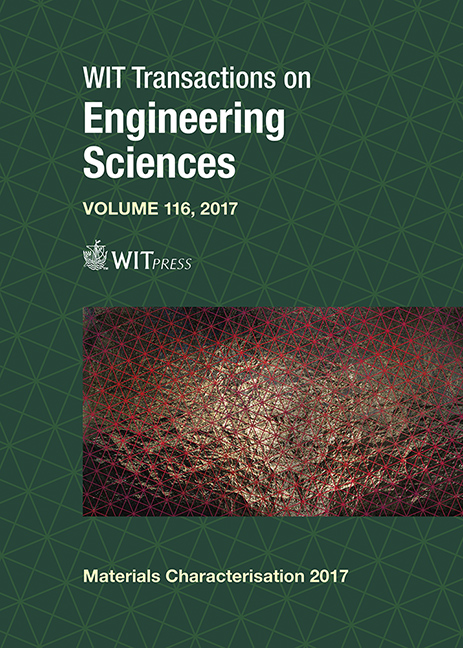CHARACTERISATION OF WASTE POLYOLEFIN BLENDS USING THERMAL AND IMAGING TECHNIQUES AIMED AT PRODUCT DEVELOPMENT
Price
Free (open access)
Transaction
Volume
116
Pages
11
Page Range
37 - 47
Published
2017
Size
867 kb
Paper DOI
10.2495/MC170051
Copyright
WIT Press
Author(s)
SULTAN MAJED AL-SALEM, ABDUL SALAM AHMED AL-HAZZA’A, MONTAHA HUSSAN BEHBEHANI, AISHA ABDULLAH AL-ROWIAH, SHUA’A FAISAL AL-ROWAIH
Abstract
A major gap exists in research and development when it comes to valorising solid waste (SW), namely of polymeric origin, targeted at product development for market use. Such opportunities can be of immense environmental and operational benefits in the future, for which materials characterisation techniques can be of immense support in providing a scientific rational. To this end, commingled plastic solid waste (PSW) blended with virgin commercial grade resin of linear low-density polyethylene (LLDPE), were subjected to scanning electron microscopy (SEM) and thermogravimetric analysis (TGA) with the aim of investigating various properties that determine product integrity. The blends comprised PSW in the following percentages (by wt.%): 0, 25, 50, 75 and 100 wt.%. The blends were compounded by weighing, extruding, and blow-filming using a single screw extruder (L/D = 30, 45 bars and 85 RPM) and a film-blowing machine (monolayer) with a water cooling temperature maintained between 16 and 17°C. The die head temperature (DHT) was maintained at 175°C to preserve the mechanical integrity of the LLDPE resin. The images obtained showed the distinctive impact of waste content which can cause the deterioration of products used in outdoor environments. A comparative assessment with weathered samples also revealed knowhow development opportunities for such applications. The thermograms obtained distinguished the polyolefin material degradation profile clearly, which can be used as a basis for thermal degradation kinetics determination.
Keywords
plastic solid waste, thermogravimetric analysis, scanning electron microscopy, extrusion, polyolefin





